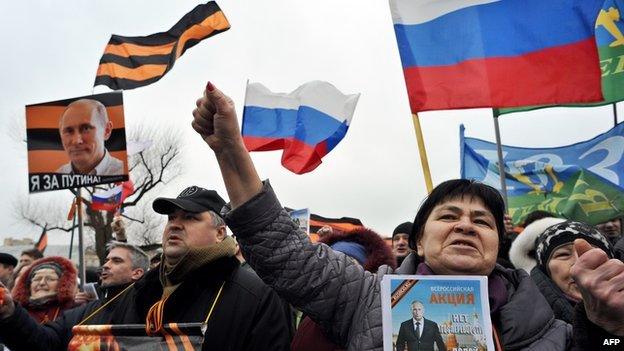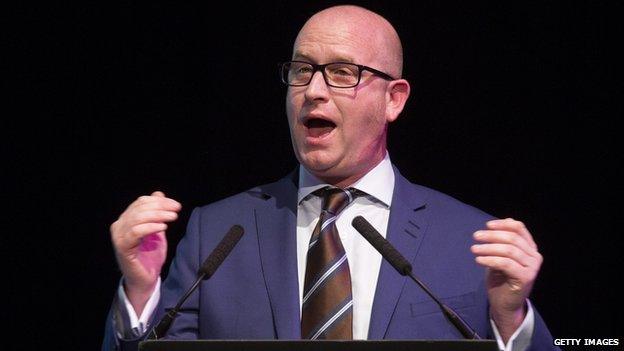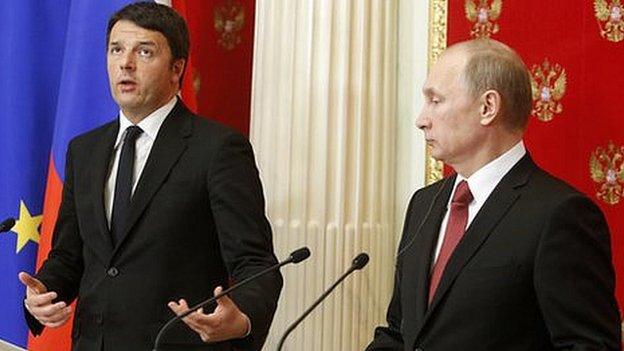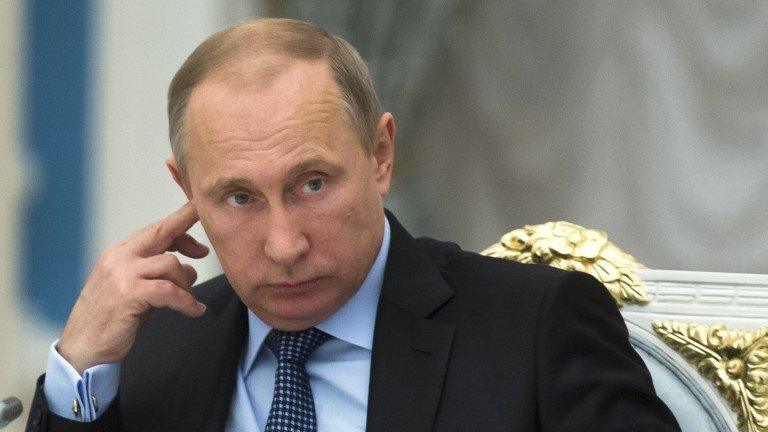Nationalists defy EU condemnation of Russia abuses
- Published

The influence of Russian nationalists has grown under Vladimir Putin
Anti-EU parties including UKIP have voted against a European Parliament resolution, which condemns Russian human rights abuses.
The strongly-worded, non-binding resolution, external was passed by a majority of MEPs. It called for a ban on funding of political parties in the EU by non-EU "political or economic stakeholders".
Reports say the French National Front (FN) has received loans worth several million euros from a Russian bank.
Russia remains under EU-US sanctions.
The sanctions target Russian state banks, defence and energy industries, and close aides to President Vladimir Putin.
They are expected to be renewed next month, to keep up pressure aimed at defusing the conflict in Ukraine. The West accuses Russia of helping the separatists in eastern Ukraine with soldiers and heavy weapons - something Russia denies.
UKIP members, along with nationalists from France, Italy and some other countries, opposed the European Parliament resolution. The MEPs' votes were reported by the Votewatch Europe website, external.
In the past, UKIP leader Nigel Farage has expressed some admiration for Mr Putin.
Bulgarian Socialists also voted against the resolution. Russia maintains strong ties with Bulgaria, based on centuries-old shared culture and religion.
In a comment on the vote, external, UKIP deputy leader Paul Nuttall said his party objected to any EU involvement in party funding.
"UKIP does not support interference by the European Commission in any aspect of funding for British political parties. UKIP supports the laws which are already in place in Britain which prohibit foreign funding of political parties."

UKIP's Paul Nuttall and party activists see a UK exit from the EU as the priority
New 'Nationalist International'
The resolution's author was Lithuanian MEP Gabrielius Landsbergis of the European People's Party, the main centre-right bloc.
Much of the text lambasted the Russian government for its crackdown on political opponents, gay activists and civil society groups (NGOs).
It said the parliament "is deeply concerned at the ever more intensive contacts and co-operation, tolerated by the Russian leadership, between European populist, fascist and extreme right-wing parties on the one hand and nationalist groups in Russia on the other".
Such contacts, it said, were "a danger to democratic values and the rule of law in the EU". EU states should "take action against this threat of an emerging 'Nationalist International'," it said.
It referred to a St Petersburg meeting in March between Russian nationalists and other far-right European activists.
The MEPs also accused Russia of "hybrid warfare, deliberately blurring the lines between military/paramilitary activity and political activism".
Russia "can no longer be treated as, or considered, a 'strategic partner'," the resolution said, echoing the official EU position.
The MEPs urged the European Commission to fund "concrete projects aimed at countering Russian propaganda and misinformation".
- Published10 June 2015

- Published6 June 2015
